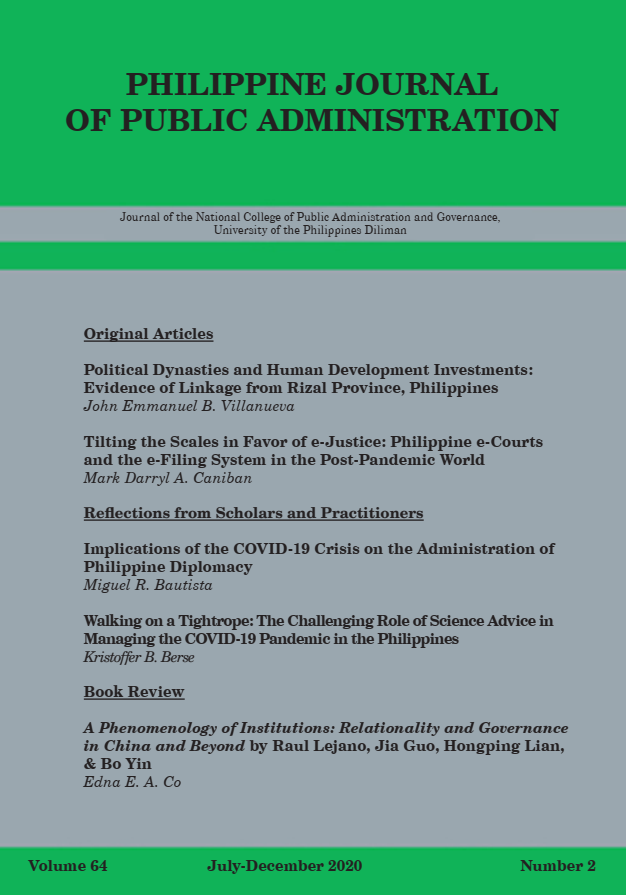Walking on Tightrope: The Challenging Role of Science Advice in Managing the COVID-19 Pandemic in the Philippines
Abstract
Science advice is an exercise in funambulism. To effectively influence the grand spectacle of politics, science needs to constantly walk on a tightrope, as it carries the weight of objectivity on one hand and the complex, often subjective, demands of the government and public sector on the other. Lean too much on either side and it can easily lose either its credibility in the eyes of the public or its seat in the corridors of power. This struggle is no small feat given that scientists have to “muddle through”—to borrow the words of Charles Lindblom (1959)—a system that is highly bureaucratic and not easily malleable to scientific persuasions. This delicate balancing act is even more critical during major disasters such as the ongoing COVID-19 pandemic. The trail that SARS-COV-2 leaves behind has all the ingredients of a challenging crisis: its impacts are massive and unprecedented, it requires urgent action, and it comes with a good deal of uncertainty. While it is not exactly a black swan event, it is pretty much a major perturbation that makes a perfect ground for science to assert its authority as a provider and arbiter of scientific evidence.



